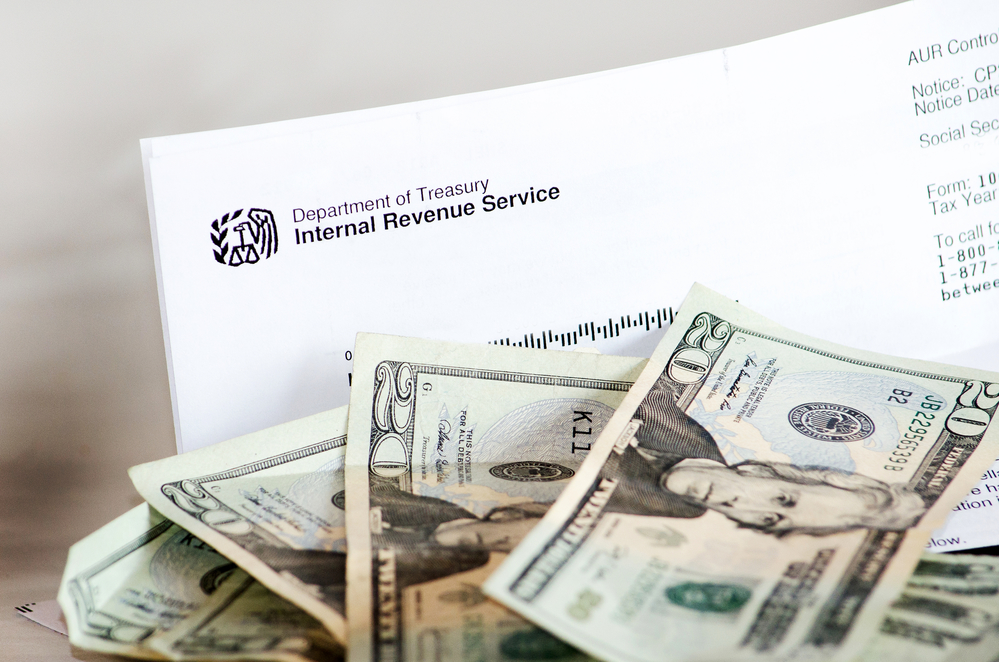FORM 8965
Home > Form 8965

In 2010, the Affordable Care Act was signed into law, which made health care insurance coverage mandatory for US citizens. Since 2014 (when the laws of the ACA were fully implemented), there has been a penalty for not having health insurance coverage. This penalty is a hefty fine that must be paid at tax time. However, if you were uninsured for all or part of the year, you may be eligible for certain exemptions to this fine.
If you qualify for an exemption to the health coverage law, you’ll need to know about Form 8965, the IRS form to claim or report a health coverage exemption. In this post, we’ll cover who qualifies for a health coverage exemption and how you can use Form 8965 to claim or report a health coverage exemption.
What is Form 8965?
Form 8965 is the IRS tax form associated with health coverage exemptions. To claim or report a health coverage exemption, you will need to fill out IRS Form 8965 and submit it with your tax return. On Form 8965, you will fill out information about your “tax household,” which can include you, a spouse (if you are filing a joint return), and any dependents. Form 8965 is not to be confused with the similarly named Form 8962, which is the premium tax credit form.
You may also need to use Form 8965 to figure out a shared responsibility payment, which is the penalty amount you may need to pay if you did not have minimal essential health insurance coverage for the full year (all 12 consecutive months). This penalty is pro-rated depending on the number of months any given individual was uninsured. Penalties are different for those who did not have minimum essential coverage for a full 12 month period and for those who didn’t have coverage for only part of the year.
Speak to a tax expert about Form 8965. Contact us now!

Who Can Claim Health Coverage Exemptions on Form 8965?
To claim health coverage exemption using Form 8965, you’ll need to be eligible for exemption from the individual mandate, which is the part of the Affordable Care Act that requires citizens to have health insurance coverage. The government understands that some who did not have health insurance for any given year may have been under extenuating circumstances. So there are actually many reasons you can be exempt from the individual mandate, which we’ll go through in this section.
Note that while these are examples of reasons the government may grant exemptions, the government determines exemption eligibility on a case-by-case basis.
Income Exemptions: Low Income or Prohibitively Expensive Health Insurance
If your income is below the tax filing threshold, you can claim an exemption from the individual mandate using Form 8965. Additionally, if the lowest priced coverage available to you (whether that is through the ACA marketplace for your area or your job) would have cost more than 8.16% of your household income, you can claim an exemption from the individual mandate due to this issue with affordability.
Health Coverage-Related Exemptions
If you had a qualified health plan for most of the year but were uninsured for a short period of time (up to two months), you may qualify for the short coverage gap extension.
If you live in a state that didn’t expand its Medicaid program and your household income is also below 138% of the current federal poverty level, you may qualify for a Medicaid expansion exemption.
Hardship Exemptions
You can qualify for an exemption if you experienced hardship around the time you did not have health insurance. Hardship can be financial hardship or hardship that prevented you from obtaining health insurance coverage through your employer or through the marketplace at healthcare.gov.
Some examples of hardship scenarios that may qualify you for exemption include homelessness, eviction, foreclosure, bankruptcy, medical debt due to unexpected medical expenses, domestic violence, natural disasters that cause property damage, an unexpected increase in expenses due to the illness of a family member, or a death in the family.
Generally, hardship exemptions do not exempt an individual for an entire year, but rather for the period of time the hardship occurred.
Group Membership Exemptions
Certain groups can qualify for full exemption from the individual mandate. These groups can include:
- Members of a federally recognized tribe (such as American Indian Tribes and Alaska Natives)
- Those who are eligible for services through an Indian Healthcare Provider
- Members of a recognized health care sharing ministry
- Members of a recognized religious sect with religious objections to insurance, Social Security, and Medicare. To qualify for an exemption as a member of a health care opposed religious group, you’ll need to submit an application to the Health Insurance Marketplace, be approved, and receive an exemption certificate number (ECN).
Incarceration
Those who are incarcerated (in prison or jail) can qualify for the incarceration exemption.
US Citizens Living Abroad
If you’re a US citizen but you’re currently living abroad, you can qualify for an exemption to the individual mandate. You may also qualify if you’re not considered “lawfully present” in the US or you’re considered a non-citizen.
Add-On Exemptions
There are two types of exemptions that you can only claim if you already qualify for another exemption. The first is the birth or adoption exemption, which is a short-term exemption that applies to the month of the event and the month before. The second applies if a member of your tax household died during the year. This is also a short-term exemption type that applies to the month of the death and the month before the death.

Claiming or Reporting Health Coverage Exemption on IRS Form 8965
IRS Form 8965 includes instructions on the form itself for how you should claim or report a health coverage exemption. There are three parts to the form:
- Complete Part I If: You have a marketplace-granted coverage exemption.
- Complete Part II If: You are claiming a coverage exemption because your household income or gross income is below the filing threshold.
- Complete Part III If: You and/or a member of your tax household are claiming an exemption on your federal income tax return.
Using Form 8965 If You Do Not Qualify for an Exemption
You may need to use IRS Form 8965 if you do not qualify for an exemption from the individual mandate. If you did not have coverage for all or part of the tax year and do not qualify for an exemption, you will need to use Form 8965 to calculate your shared responsibility payment. Your shared responsibility payment will be either a flat fee or a percentage of your annual income, whichever is greater. There are caps on the amount each individual or family will have to pay, which can change per year and can vary according to your unique financial situation. Be sure to pay close attention to the instructions on Form 8965, as penalty calculation figures and filing requirements can change yearly.

Form 8965 Exemption Help
If you need help preparing IRS Form 8965, contact Tax Defense Partners today. Our dedicated team of accountants, CPAs, and licensed tax attorneys can help you determine whether or not you may qualify for an exemption and can file Form 8965 on your behalf.
![]()
